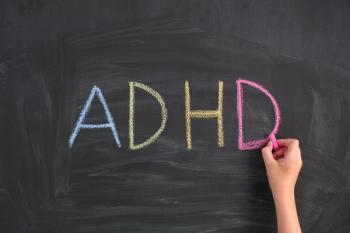
Dog bites in children: Focus on posttraumatic stress disorder
For an adult to appreciate the experience of a child bitten by a dog, especially if it is at the shoulders or higher, imagine being attacked by an angry, opened-mouthed, growling bear near your face. Your immediate shock and emotional overload would be similar to that of a dog-bitten child. There is, however, one striking, important difference.
Key Points
The memories of the pain a child suffers from a vicious dog bite will eventually fade. The fear and emotional damage, however, could last a lifetime. Learn how to recognize the signs of posttraumatic stress disorder in wounded children and when to refer them for psychotherapy.
I have vivid memories of the family of a 9-year-old son of an emergency department (ED) physician whom I saw more than a decade ago. The parents made an appointment for their son on the advice of their attorney to determine whether residual psychological symptoms persisted from a dog bite he had sustained 1 year earlier.
Mark (not the boy's name) was playing at the neighbor's house. Two children were in the kitchen when the neighbor heard screams and crying. She rushed in to find Mark with blood flowing over the side of his face and head. She placed a towel over the bleeding, which appeared to be the result of a dog bite. A quick call found the boy's father at home. He immediately arrived, tenderly carried his son to his car, and drove to the ED where Mark's wounds were repaired without incident.
A child's perspective
For an adult to appreciate the experience of a child bitten by a dog, especially if it is at the shoulders or higher, imagine being attacked by an angry, opened-mouthed, growling bear near your face. Your immediate shock and emotional overload would be similar to that of a dog-bitten child. There is, however, one striking, important difference.
On hearing their son tell his story with such strong emotion, the parents' faces reflected surprise and sadness. They had no idea that he had silently carried such a heavy emotional burden during the year since the attack.
Here is the important difference of this kind of trauma to a child versus an adult. The adult victim of a bear attack might speak of the bear attack easily and often. Sensitive and intelligent children, however, quickly notice that any time the dog bite attack comes up, no matter the source, their parents' faces express guilt and sadness. Consequently, these children stay silent about the trauma and work to bury their feelings. That combination can lead to posttraumatic stress disorder (PTSD) after a dog bite, as it may with any overwhelming trauma.
Symptoms of PTSD in dog-bitten children
I used the remainder of our appointment to promote a discussion between the boy and his parents to begin to resolve their emotions. I suggested that they be alert to any indications of PTSD symptoms, including changes in typical daily functioning.
Research over the past decade about the psychological sequelae of a dog bite confirms that PTSD occurs in a high percentage of young children attacked by dogs.1-4 Signs and symptoms of PTSD include excessive anxiety, irritability, decreased school performance, sleep disturbance, reduced creativity, withdrawal, altered appetite, depression, physical complaints, pronounced startle responses, and behavior problems.5 Any one of these can impede the expected social, academic, and emotional growth of a child.
These symptoms can occur any time and may exacerbate with seeing or being near a dog to the point of total avoidance or excessive fear.
Newsletter
Access practical, evidence-based guidance to support better care for our youngest patients. Join our email list for the latest clinical updates.






